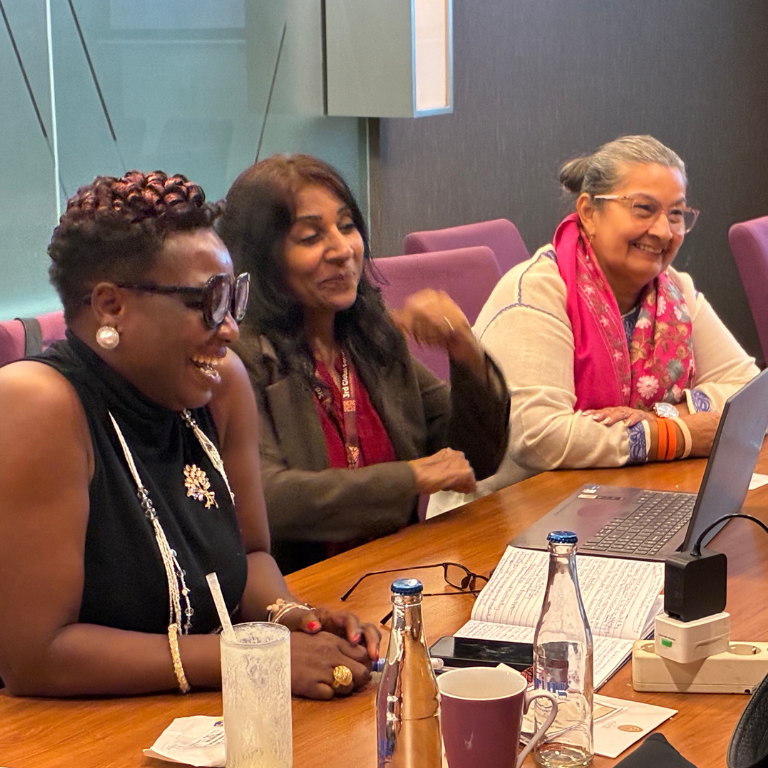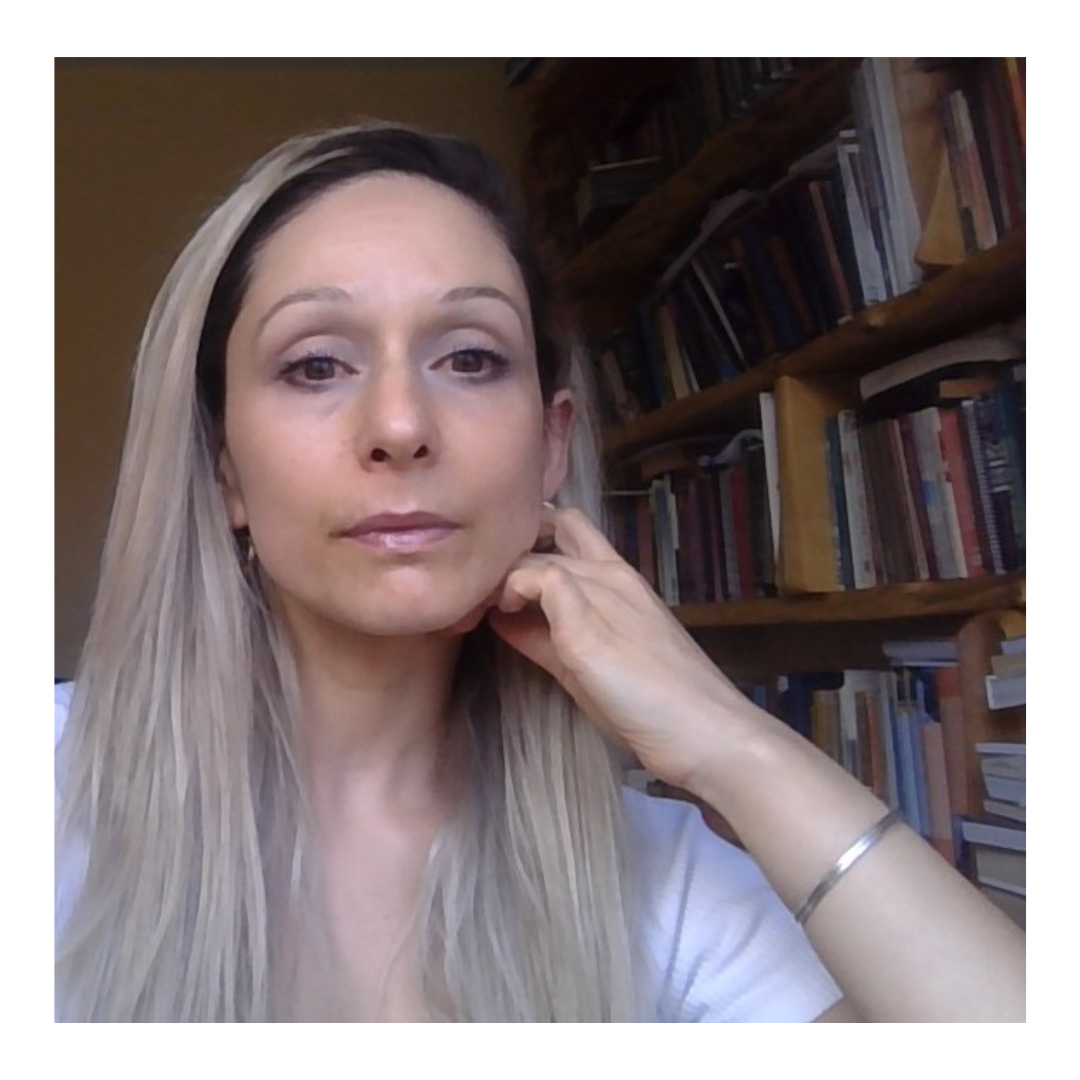The Sasakawa Leprosy (Hansen’s Disease) Initiative and the World Health Organization (WHO) partnered to launch this year’s Global Appeal to end stigma and discrimination against persons affected by leprosy at WHO headquarters in Geneva, Switzerland. More than 100 people attended the launch ceremony on January 31, 2024, including permanent mission representatives, non-governmental organization (NGO) leaders, and WHO officials.
Yohei Sasakawa, WHO Goodwill Ambassador for Leprosy Elimination and Chairman of The Nippon Foundation, initiated the Global Appeal in 2006. Scheduled annually to coincide with World Leprosy Day on the last Sunday in January, the Global Appeal comprises a written appeal (statement of issues and call for action) along with a launch ceremony at which the appeal is read aloud. In order to spread awareness and encourage solidarity, the Initiative seeks a new set of influential individuals and organizations to attend the event and sign the appeal each year. This year, the appeal was signed by WHO Director-General Dr. Tedros Adhanom Ghebreyesus.
The Initiative reached out to WHO because of the organization’s influence on national leprosy programs worldwide. During the COVID-19 pandemic, restrictions and diversion of resources disrupted control and prevention activities. Now that the crisis has passed, the time is right to urge countries to revisit WHO’s Global Leprosy (Hansen’s disease) Strategy 2021-2030 and intensify efforts to reach the targets.
In addition to stating intentions to help countries to rebuild national efforts and ensure better access to care for all, this year’s appeal identifies a well-informed public as “our greatest ally in this endeavor.” The appeal urges members of the public to educate themselves, encourage treatment seeking, reject discrimination, and spread awareness.
The launch ceremony opened with a special concert featuring Stradivarius violinists Giuseppe Gibboni and Rino Yoshimoto. A series of video messages followed, and then Director-General Dr. Tedros and Goodwill Ambassador Sasakawa took the stage for a dialogue about past collaboration and expectations for the future. The event finished with a reading of the appeal by Anushka Sarna from India and Ahlula Moyo from South Africa, children of WHO staff members based in Geneva.
The video messages began with a call from the United Nations Special Rapporteur on the elimination of discrimination against persons affected by leprosy, Dr. Beatriz Miranda Galarza, for a human-rights-based system of quality care and support. In her words, “Guaranteeing access to a high-quality support and care system is not only a human rights obligation, but also a condition to ensure the elimination of discrimination against persons affected by leprosy and their families.”
The Special Rapporteur’s statement was followed by messages from persons affected by leprosy in Bangladesh, Brazil, Ethiopia, Ghana, India, Indonesia, and Tanzania. WHO Representatives from four high-burden countries – Bangladesh, India, Indonesia, and Somalia – also contributed messages.
Dr. Bardan Jung Rana, WHO Representative to Bangladesh, highlighted that Prime Minister Sheikh Hasina called for Bangladesh to achieve zero leprosy by 2030 at national leprosy conferences in 2019 and 2023. He expressed his willingness to work with the government and the private sector to realize this goal.
Dr. Roderico H. Ofrin, WHO Representative to India, reported that India’s five-year National Strategic Plan and Roadmap for Leprosy, launched in 2023, prioritizes combating stigma and ensuring the protection of the human rights of persons affected by leprosy. A critical component of this plan is to repeal all remaining discriminatory laws at the national and sub-national levels. The plan also includes the provision of psychological care and counseling to promote mental health.
In his dialogue with the Goodwill Ambassador, Dr. Tedros indicated that WHO’s Global Leprosy (Hansen’s disease) Strategy 2021–2030 clearly sets out what needs to be done to achieve zero leprosy, and he affirmed that WHO will support countries as they implement it. He emphasized that promoting community cooperation and eliminating stigma and discrimination through a people-centered approach will contribute to early diagnosis and prevent disability.
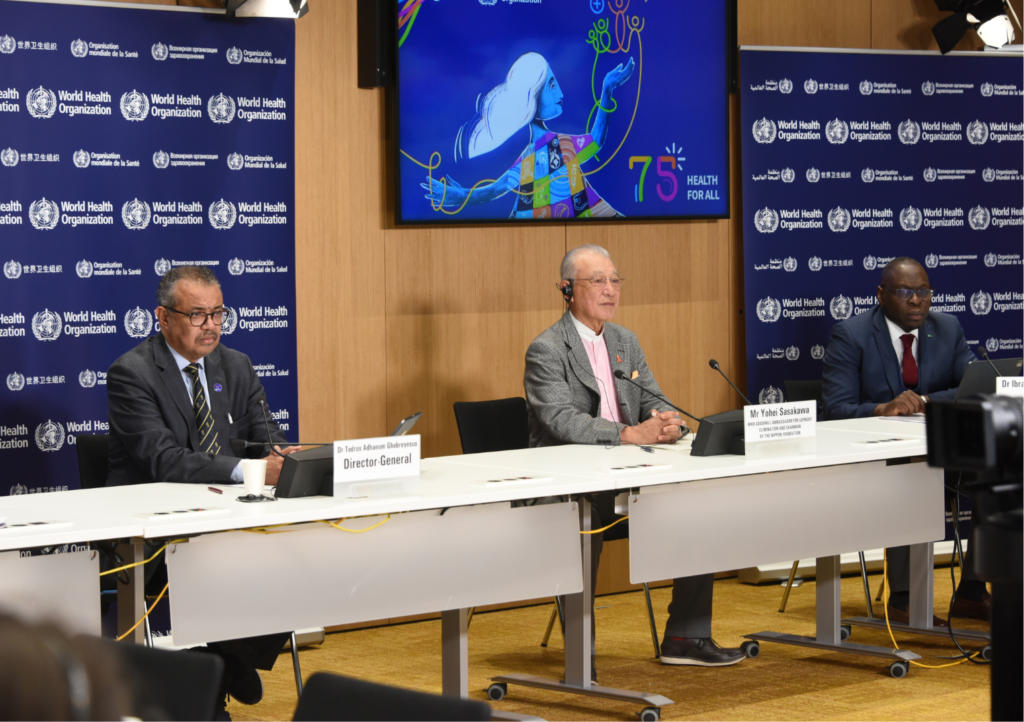
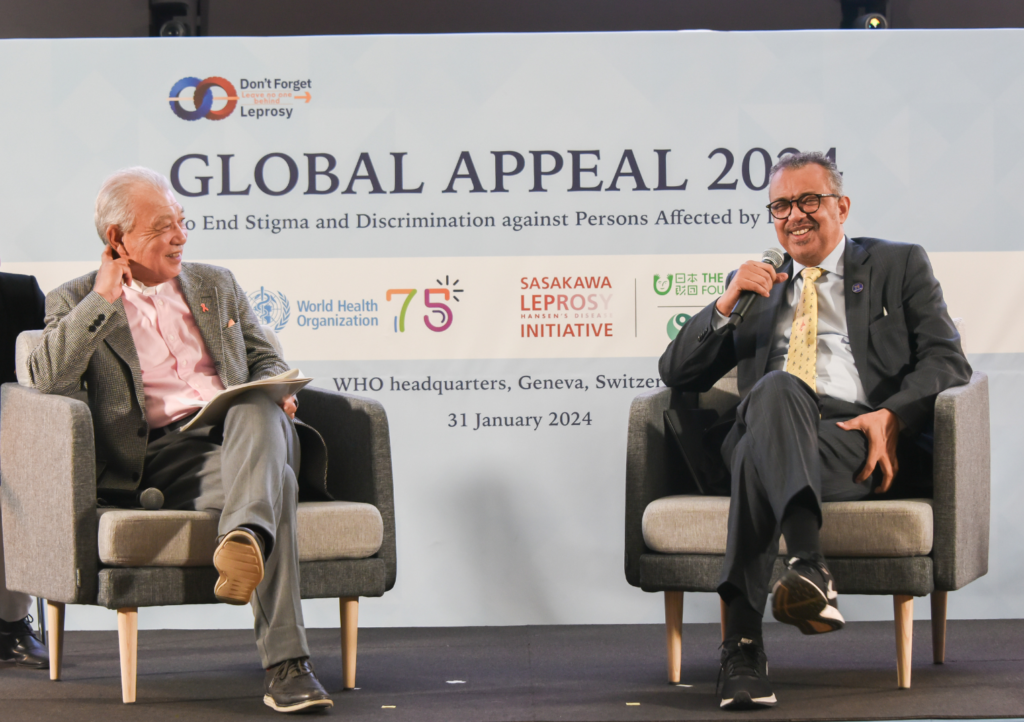
Goodwill Ambassador Sasakawa ended with the observation that next year will mark 50 years of collaboration with WHO to eliminate leprosy. He explained that he feels a sense of responsibility for showing results of the long collaboration, and he reiterated his intention to devote the rest of his life to the cause.
Video recordings from Global Appeal 2024
https://gasasakawa.org/globalappeal2024/
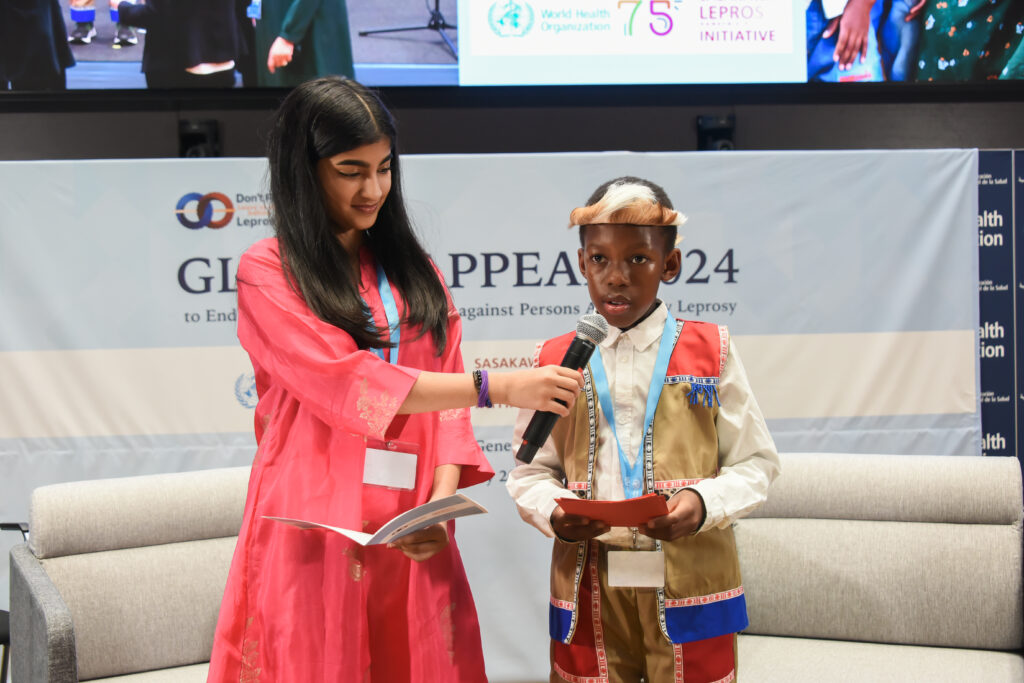
Full text of Global Appeal 2024 to end stigma and discrimination against persons affected by leprosy
Leprosy, a disease with ancient origins, still lingers in our world, primarily affecting countries in Asia, Africa, and South America. While it is now curable, the enduring stigma and discrimination surrounding leprosy remain barriers to its elimination. Early detection and treatment can prevent physical impairment, but fear of discrimination often keeps people from seeking help.
To envision a world without leprosy, we must collectively reject the discrimination that clings to this disease and reach every case. The COVID-19 pandemic made the fight against leprosy harder by disrupting country efforts to control the disease. The World Health Organization, Sasakawa Leprosy (Hansen’s Disease) Initiative, and partners are working with countries to help rebuild these national efforts and ensure better access to care for all. Our greatest ally in this endeavor will be a well-informed public.
Here’s how you can help:
- Educate Yourself
Learn the facts about leprosy, its curability, and the importance of early treatment and possible prevention. - Encourage Treatment Seeking
If you come across a suspected case of leprosy, prompt treatment is vital. Treatment is available free of charge. Encourage people to seek help. - Reject Discrimination
Treat everyone with compassion and respect, regardless of their health status. - Spread Awareness
Share accurate information about leprosy and challenge stereotypes within your community.
Together, we can create a world where no one is left behind on account of a treatable disease. Let us break the chains of discrimination, work toward a leprosy-free world, and ensure dignity and care for everyone affected by this disease.







-1.png)
